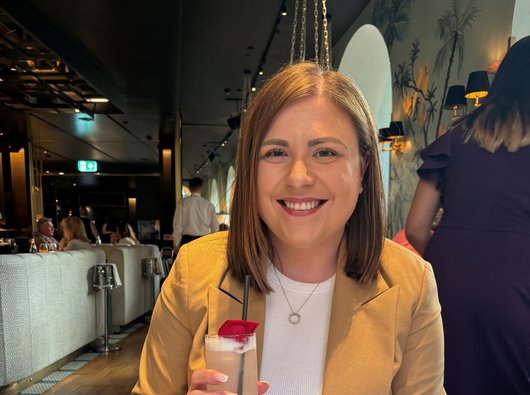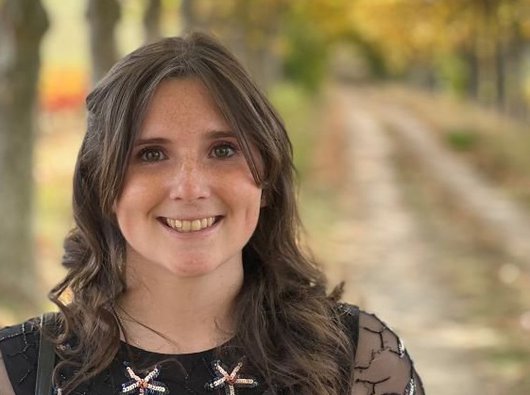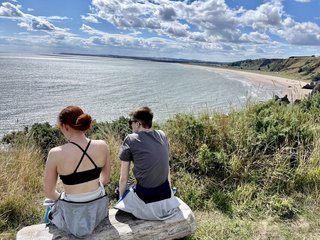Life after Hodgkin lymphoma
Finishing treatment for Hodgkin lymphoma is a big achievement, but it can bring mixed emotions. Knowing what to expect can help.
Follow-up after treatment
Once your treatment is finished your doctor or clinical nurse specialist will make a plan with you for your follow-up. How often they want to see you will depend on your individual situation, and what the standard practice is at your hospital. The appointments will usually be every few months, but will become less frequent over time.
Some hospitals now use a system called supported self-management for your follow-up. You might also hear this called:
- remote monitoring
- patient-triggered follow-up.
If your hospital offers supported-self management, you might not have formal booked appointments. Instead, your hospital team will tell you any symptoms to look out for, and you will be able to contact them if you have any concerns. You will usually have regular blood tests at your GP surgery to check your general health.
Whatever type of follow-up your hospital offers, your doctor or nurse should talk it through with you and explain how it works.
How long will my follow-up last?
After 2 to 3 years of monitoring, if you remain well, your hospital might hand your care back to your GP. This is because at this point the risk of the lymphoma coming back is less likely. But you should still contact your hospital team or GP if you have any concerns or notice new symptoms.
Will the Hodgkin lymphoma come back (relapse)?
Most people who go into remission from Hodgkin lymphoma do not relapse. But there is a chance it can happen.
If Hodgkin lymphoma comes back, it’s usually within the first two years. As time goes on, relapse becomes less likely.
Your hospital team will tell you any symptoms to look out for that could be a sign of the Hodgkin lymphoma coming back. It’s important to contact your hospital team if you notice any new symptoms. They might be nothing to worry about but it’s best to get them checked quickly. If they are caused by a relapse, catching it early will give a better chance of successful treatment.
"I had a lot of mental work to do after treatment. I had counselling to help me get over the fear of getting ill again. But my experience also gave me a big drive to go out and smash life."
Emily, diagnosed with Hodgkin lymphoma in 2014.

Breast screening after Hodgkin lymphoma
If you are a woman and had radiotherapy to the chest between the ages of 10 and 35, the NHS will invite you for earlier and more frequent breast screening. This is because radiotherapy to the chest increases the risk of breast cancer.
Most people who are treated for Hodgkin lymphoma do not go on to develop breast cancer, but it's important to attend any screening appointments you are invited to. Regular screening can find breast cancer early, increasing the chance of successful treatment.
When will breast screening start?
If you are eligible for annual breast screening, you will usually be invited for your first appointment 8 to 15 years after radiotherapy. Screening doesn’t start immediately because the increased risk doesn’t emerge until around 10 years later.
If you have any worries about breast cancer risk, speak to your GP or hospital team. They can tell you more about your individual level of risk, and make sure you are signed up to the right screening programme.
Breast screening if you’re trans or non-binary
If you have breast tissue and are trans or non-binary, you should be invited for annual breast screening if you:
- had radiotherapy to the chest between the ages of 10 and 35
- are registered as female or indeterminate with your GP.
If you are registered male with your GP, you will need to speak to your GP for a referral.
For more information, see NHS population screening: information for trans and non-binary people.
How you might feel
It can take time to recover from Hodgkin lymphoma, both physically and emotionally. Don’t feel bad if you don’t bounce back straight-away.
Finishing treatment can bring mixed feelings. Many people feel relieved and happy that it's over. But it's also common to feel vulnerable, alone or worried about the future.
You might find finishing treatment harder than expected – this is natural. Some people say that they only started to process the shock of their diagnosis, once the treatment had ended.
If you are coping with lasting side effects, like changes to your heart or lungs, or infertility, it can be hard to accept that the treatment has changed your body more permanently.
There's no right or wrong way to feel after treatment. Other people who've recovered from blood cancer have good advice on our online community forum.
"At first I was thinking right, treatment done, off I go to living life, but it didn't work like that. Months later, I realised I was struggling and reached out to a nurse to ask for help."
Natalia, diagnosed with Hodgkin lymphoma in 2015.

Looking after yourself
If you’re finding things hard after Hodgkin lymphoma treatment ends, there are things you can do to help:
Keep talking to your medical team - They are there to help you adjust back to your life after treatment. Ask them about side effects, the emotional impact of Hodgkin lymphoma or financial support.
Keep active – Physical activity will help you recover from Hodgkin lymphoma. It also helps you sleep better and reduces stress, anxiety and depression. Even a five minute walk can help. Do what you can, but listen to your body. We have more information on keeping active and eating well.
Know how to manage fatigue – Fatigue (tiredness) is a very common side effect of blood cancer and its treatment. It’s different from normal tiredness. We explain what fatigue is and how to manage it.
Get emotional support – It's common for the emotional impact of everything to be felt once treatment ends. Many people find counselling helps them adjust to this big change in your life. You can talk to our Support Service too – we often talk to people about coping once treatment ends.

Coping after treatment ends
Get more information and stories about coping with remission.
